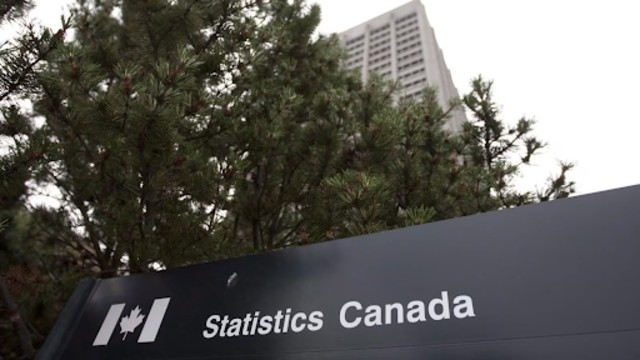
A sign identifying the Statistics Canada office is seen in Ottawa on July 21, 2010. (The Canadian Press/Sean Kilpatrick)
Canada’s inflation rate is expected to show little change when January’s consumer price index is released this week, largely due to the ongoing GST exemption on certain goods. This tax break, introduced by the federal government in December, has influenced spending patterns and clouded the real picture of price changes.
According to Statistics Canada, inflation had already slowed to 1.8% in December, mainly because of the temporary sales tax pause on restaurant meals and alcohol. Without this exemption, the inflation rate would have instead risen to 2.2%, highlighting how much the tax break has impacted overall spending trends.
Economists Predict Stability in Inflation
Doug Porter, chief economist at BMO, suggests that inflation remains close to the Bank of Canada’s 2% target, even when adjusted for the GST break. Compared to the high inflation of previous years, he believes the country is in a much better economic position.
RBC’s assistant chief economist, Nathan Janzen, predicts a further decline in inflation to 1.7% for January. However, he cautions that the GST holiday will continue to skew inflation readings until March when clearer data will be available. The Bank of Canada is expected to rely on core inflation measures—excluding the impact of indirect taxes—to assess underlying trends.
Key Sectors Affected by Inflation Trends
In December, grocery prices saw slower growth at 1.9% year-over-year, while gas prices increased by 3.5%. Shelter costs, another significant factor in inflation calculations, remained high. Rent prices rose by 7.1% compared to the previous year, and overall housing costs increased by 4.5%.
Despite these figures, Canada’s economy has shown signs of stability. The Bank of Canada recently cut its interest rate to 3% on January 29, signalling confidence in the country’s economic trajectory. Officials noted that inflation is remaining near the 2% mark, reinforcing their decision to adjust rates.
Upcoming Interest Rate Decisions
Looking ahead, the biggest factor influencing future interest rate cuts could be the possibility of a trade conflict with the United States. The next rate decision is set for March 12, and many economists anticipate the Bank of Canada will continue to lower rates gradually.
Porter believes that the ideal benchmark for the central bank would be around 2.5%, but he acknowledges that the current rate of 3% is still slightly above this neutral level. As the government monitors inflation trends and external economic risks, Canadians can expect cautious adjustments in monetary policy moving forward.















